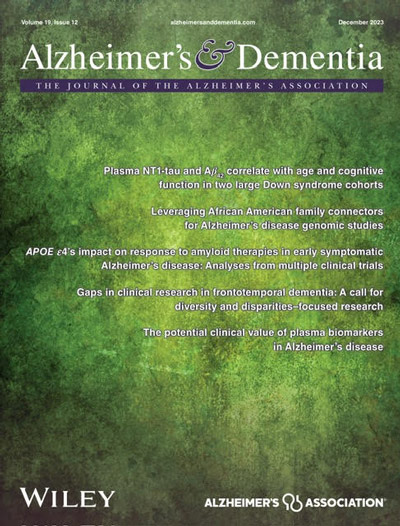Age at menopause and cognitive function and decline among middle-aged and older women in the China Health and Retirement Longitudinal Study, 2011–2018
Abstract
INTRODUCTION
Chinese women experience higher dementia rates than men, yet sex-specific risk factors are understudied. We examined how menopause age affects cognitive function and decline in aging Chinese women.
METHODS
Data were from 7419 postmenopausal women 45–101 years of age at baseline in the China Health and Retirement Longitudinal Study (CHARLS; 2011–2018). Menopause age was categorized using clinical cutoffs (<40, 40–44, 45–49, 50–55, >55 years). Cognitive function was assessed with neuropsychological tests up to four times over 7 years, and associations were analyzed using multivariable-adjusted linear mixed-effects regression.
RESULTS
Compared to menopause at 50–55 years (3661/7419; 49.3%), premature (<40; 235/7419; 3.2%), early (40–44; 623/7419; 8.4%), and late menopause (>55; 366/7419; 4.9%) were associated with lower baseline cognitive scores. Although the rate of cognitive decline did not differ significantly across menopause age groups, late menopause showed a trend toward faster decline.
DISCUSSION
Cognitive health interventions should consider extreme menopausal age as a risk factor.
Highlights
- Extreme menopausal ages—premature (<40), early (40–44), and late (>55)—are linked to lower baseline cognition versus menopause ages 50–55, persisting over 7 years.
- Cognitive disadvantage for late menopause (>55) versus 50–55 tends to increase over time.
- Health interventions should consider extreme menopause ages in women's cognitive health.


 求助内容:
求助内容: 应助结果提醒方式:
应助结果提醒方式:


